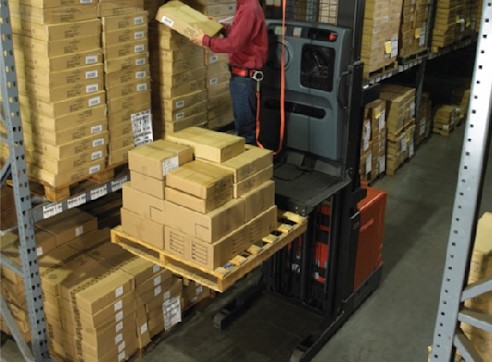How many jobs are available in catalog/specialty distribution
The catalog/specialty distribution industry refers to a sector that is experiencing growth and provides many job opportunities. This industry involves the distribution of various products that are featured in catalogs or are considered specialty items. As the demand for these products increases, it becomes crucial to have capable individuals who can oversee the distribution process efficiently.
In this article, we will discuss the different types of jobs available within the field of catalog/specialty distribution, the skills necessary to succeed in these roles, and the advantages of choosing a career in this industry.
What is Catalog/Specialty Distribution?
 Catalog/specialty distribution is a way that businesses sell their products to specific markets or specialized product categories. Instead of selling products in traditional stores, companies using this strategy, sell directly to customers through catalogs, online platforms, or specialized stores.
Catalog/specialty distribution is a way that businesses sell their products to specific markets or specialized product categories. Instead of selling products in traditional stores, companies using this strategy, sell directly to customers through catalogs, online platforms, or specialized stores.
Catalog distribution involves creating catalogs that showcase products and sending them to potential customers by mail or online. Customers can browse the catalog, choose their desired products, and place orders directly with the company. This method allows businesses to reach many customers without needing physical stores.
How many jobs are available in catalog/specialty distribution
 According to the Bureau of Labor Statistics, there are 5,744,400 jobs available in the catalog/specialty distribution job market.
According to the Bureau of Labor Statistics, there are 5,744,400 jobs available in the catalog/specialty distribution job market.
Jobs Available in Catalog/Specialty Distribution
 Here is some of the list of available job positions in catalog/specialty distribution.
Here is some of the list of available job positions in catalog/specialty distribution.
- Warehouse workers: A warehouse worker is responsible for receiving, storing, and shipping products.
- Order pickers: An order picker selects products from the warehouse to fulfill customer orders.
- Packers: A packer prepares products for shipping.
- Shippers: Shippers ensure that products are delivered to customers on time.
- Product analyst manager: A Product Analyst Manager is responsible for analyzing product data and making recommendations for improvement.
- Business analyst: A Business Analyst is responsible for analyzing business data and making recommendations for improvement.
- Insights specialist: An Insight Specialist is responsible for analyzing customer data and making recommendations for improvement.
- Product Specialist: A Product Specialist is responsible for managing the development and launch of new products.
- Logistics analysts: A Logistics Analyst is responsible for analyzing logistics data and making recommendations for improvement.
- Supply chain managers: A Supply Chain Manager is responsible for managing the supply chain process.
Transportation coordinators: Transportation Coordinators are responsible for coordinating transportation logistics. - Store managers: Store Managers are responsible for managing the day-to-day operations of a retail store.
- Sales representatives: A Sales Representative is responsible for selling products to customers.
- Lead managers: Lead Managers are responsible for managing a team of employees.
- Warehouse managers: Warehouse Managers are responsible for managing the day-to-day operations of a warehouse.
Benefits of Pursuing a Career in Catalog/Specialty Distribution
There are a lot of benefits to pursuing a career in Catalog/Specialty distribution. Here are some of the benefits of pursuing a career in catalog/specialty distribution:
- Variety of products: Working in catalog/specialty distribution allows you to handle various products. This can make your work environment distinct and interesting, as you constantly learn about new and unique items.
- High demand: Catalog/specialty distribution focuses on genre markets and specialty products. These products often have a dedicated customer base, which means there is a constant need for them. This can provide you with job security with a stable career.
- Managing the supply chain: Working in catalog/specialty distribution gives you valuable experience in handling the supply chain. You will learn how to find and source products, manage inventory, handle logistics, and coordinate shipping and delivery. These skills are highly transferable and can provide opportunities in various industries.
- Opportunities for growth: The catalog/specialty distribution industry is changing and adapting to the rise of e-commerce and online marketplaces. This presents chances for career advancement and growth as you learn to adapt to new technologies and business models.
- Building relationships: In this industry, you will work closely with suppliers, vendors, and customers which ultimately establishes strong relationships with these stakeholders. This can lead to long-term partnerships and networking opportunities, which can benefit your career in the long run.
- Problem-solving and decision-making: Catalog/specialty distribution involves overcoming challenges related to product availability, logistics, and customer satisfaction. This helps you develop problem-solving and decision-making skills, making you a valuable asset in any career you choose.
Want to learn about jobs available in the containers/packaging sectors? Check out our previous article on how many jobs are available in containers/packaging industry.
How to Get Started in Catalog/Specialty Distribution
Getting started in catalog/specialty distribution requires lots of research. You need to consider several factors. Some of them are described below.
- Research the Industry: Start by exploring and learning about the various types of jobs available in catalog/specialty distribution. Understand the skills and qualifications needed to excel in these roles. Also, familiarize yourself with the current trends, challenges, and opportunities in the industry.
- Gain Experience: Look for entry-level positions in catalog/specialty distribution to gain practical experience and build your skills. Consider opportunities such as internships, apprenticeships, or part-time positions to get your foot in the door. This hands-on experience will prove valuable as you progress in your career.
- Develop Your Skills: Take courses or attend workshops that focus on enhancing the skills relevant to catalog/specialty distribution. This could include areas such as data management, business development, catalog reporting, research analysis, and problem-solving. Continuously improving your skills through learning will set you apart from others in the field.
- Build a Network: Attend industry events, seminars, or conferences to connect with professionals in the catalog/specialty distribution field. Networking provides you with valuable insights, job leads, and mentorship opportunities. Building relationships within the industry can also help you stay updated on the latest trends and advancements.
- Apply for Jobs: Once you have gained experience and developed your skills, start applying for catalog/specialty distribution jobs. Customize your resume and cover letter to highlight your relevant experience and showcase how your skills align with the job requirements. Utilize online job boards, professional networking platforms, and company websites to discover suitable job openings.
- Provide Excellent Customer Service: Provide excellent customer service by prioritizing phenomenal service to build trust and loyalty. To keep customers happy, make sure to respond quickly to any questions, issues, or return requests they may have.
In conclusion, pursuing a career in catalog/specialty distribution can be a great choice because it offers various job opportunities and benefits. This industry involves selling products directly to customers through catalogs, online platforms, or specialized stores. There are various job roles available, such as warehouse workers, product analysts, logistics analysts, and more.
Choosing a career in this industry comes with several advantages, including working with different types of products, job security due to high demand, gaining experience in managing the supply chain, opportunities for growth and advancement, building relationships with stakeholders, and developing problem-solving and decision-making skills. To start a career in catalog/specialty distribution, it is important to research the industry, gain practical experience, develop necessary skills, build a professional network, and apply for suitable job openings. Additionally, providing excellent customer service is a must in order to build trust and loyalty with customers.









